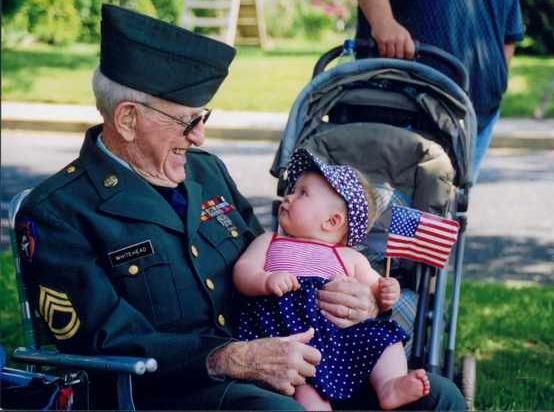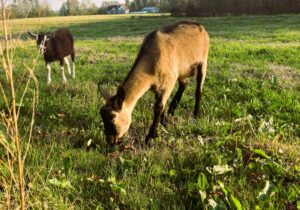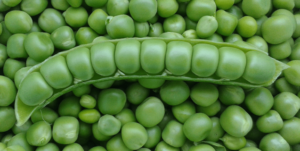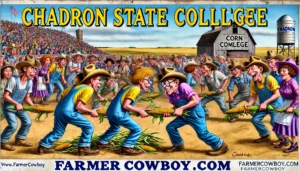
army vet.jpg
There’s no denying that becoming a farmer is a great post-military career.
Not only does it afford you the freedom and independence of a life outside the city limits, but farming also furthers your contribution to society. As a veteran, the contribution and sacrifices you’ve made are commendable in every regard.
If you were to retire from military service and spend the rest of your life watching reality tv, we would still be indebted to you.
However, for many veterans, contribution is in their blood. They spend the rest of their lives in service, and for that reason, there is no better candidate to feed the nation. Corporate farming is on the rise, but so are sustainable agriculture programs built by military veterans. These programs focus on providing veterans with the education and resources necessary to build a successful farm operation. And then those veterans are able to provide wholesome foods to the community at large.
If you’re looking to channel your dedication, discipline, and desire to make a positive contribution to society into something meaningful after you’ve completed your military service career, farming is the perfect secondary career for you.
Farming enables you to provide healthy foods to your family and community while making an earnest living. Whether you’re a disabled or retired veteran, there are countless grants and educational programs available at your fingertips. These will ease your transition into farm life.
Are you a veteran with interest in farming? Yet, without the capital or resources to learn the ropes of the trade?
Farming is quite a profitable venture if done right. Plus, it offers you the ability to be your own boss and an irreplaceable asset to your community.
You’ll be glad to hear that there are many farming programs for veterans. Many require a short application, and they are available to try out around the country. Here are some of the best programs we recommend reaching out to:
1) Archi’s Institute for Sustainable Agriculture program
Previously Veteran’s Sustainable Agriculture, this California-based AISA has 13 years of existence under its belt. Over the years it has catered to upwards of 450 veterans since its inception.
Like many of the agencies that support transitioning veterans, it is the brainchild of a former service couple. This specific institute seeks to empower transitioning service people through grassroots agriculture. In particular, the program focuses on the organic agriculture niche.
The Institue for Sustainable Agriculture offers courses that cover everything from sustainable agribusiness to agricultural networking, greenhouse designs, planning, irrigation, and aeroponics, among others. The next class is slated for 14th October 2019, with there being options to take either a 12 or 6-week course.
2) The Arcadia Center Initiative
This program, like many others, is for veterans interested in farming. However, this program caters specifically to veterans who don’t have a lot of time to spare.
If you’re already working in another industry, or you’re in school for some other type of training, this may be the program for you.
The Arcadia Center training revolves around marketing and food production, with sessions held one weekend a month for the period of one year. There’s also an extra 40-hour learning commitment which seeks to further practical experience. This means you’ll do a year of weekend-only coursework and then 40 additional hours in the field, encompassing organic farms, greenhouses, and livestock, to mention a few of the areas the program will address.
The next intake for their veteran farmer program will be in January next year (2020) with the application deadline falling on 30th November 2019. There are scholarships available for eligible veterans as well. Further, the Acardia Center is based in Alexandria, Virginia.
3) BattleGround to Breaking Ground
As we’ve mentioned in other articles, each state offers an Agrability program that caters to farmers who need assistance in their community.
Texas AgrAbility’s BattleGround initiative hinges on business plan development and start-ups in the field of agriculture. It specifically tends to first-time ranchers, maiden farmers, military families, active-duty military personnel, and military veterans. For this reason, Texas has one of the best Agrability programs for disabled veterans.
The program tackles topics in line with disability support services, hands-on training, transition support for veterans, peer support, and mentorship. The mentorship component is especially beneficial because it helps new farmers avoid mistakes that can cost years of your time.
It rolls out over three phases, with the first phase being optional. Check out their website to learn more.
4) Combat Boots to Cowboy Boots
Another farming initiative with an inclination toward servicemen and women is the Combat Boots to Cobwoy Boots program in Nebraska. This program teaches veterans and their families how to get ahead as an all-round farmer. Further, it offers insight from both farming and entrepreneurial perspectives.
Combat to Cowboy Boots pairs established business owners, ranchers, and farmers with inexperienced participants for mutual benefit. In other words, veteran farmers are helping service veterans learn to climb a different set of ropes.
It is a program funded by the University of Nebraska and fueled by local as well as federal contributions.
5) Desert Forge Foundation
The Desert Forge Foundation is all-about restoring veterans to optimal health.
Specializing in their physical, mental, and emotional well-being, these programs seem to produce amazing results for transitioning veterans.
It not only equips veterans with the tools and skillsets to manage a profitable operation in sustainable agriculture. But it also gives them the knowledge on how to face life after service, and support when times get tough thereafter.
This Non-Profit organization based in Albuquerque, New Mexico was created by combat veterans to aid others who’d like to follow in their footsteps. Like many agencies, it seems the best support comes from those who have already walked a mile in your shoes.
The Desert Forage Foundation programs reach beyond farming and into other artistic and social endeavors as well. They offer programs in filmmaking and other diverse areas of expression, although the aforementioned is the primary focus of the foundation.
More Options for Vets New to Farming
That rounds off our list, but there are many other options at your disposal.
A quick Google search will yield millions of search results. However, it’s likely that only a few will be a good fit for you.
Moreover, you’ll want to check the cost, location, and scheduling of each program. Many charge a fee, similar to what you might pay for an educational course, and many are free. A little time researching will help you to figure out which program best meets your needs.
You could also try out programs from the Farmer Veteran Coalition, New York-based Heroic Food company, Veterans Farm, or your state’s AgrAbility program.
A final program we recommend checking out is the Warriors that Farm program. Naturally, it’s based in Texas. Many states have resources for you to transition into farming, but Texas is the best hands-down.
Whether you’re a veteran looking for a new line of work, or a disabled veteran that wants to live out your days on a farm of your own – you can guarantee there’s a program or resource that’s a perfect fit for you.
Ultimately, becoming a farmer means you’re also embarking on the journey of entrepreneurship. It’s not going to be easy, but we can’t think of a better candidate than someone with a military background. You dedication, discipline, and desire to make a positive contribution to society is all you’ll need to become successful in farming.
Source link
2019-09-29 11:57:28
Karl Hoffman is a distinguished agriculturalist with over four decades of experience in sustainable farming practices. He holds a Ph.D. in Agronomy from Cornell University and has made significant contributions as a professor at Iowa State University. Hoffman’s groundbreaking research on integrated pest management and soil health has revolutionized modern agriculture. As a respected farm journalist, his column “Field Notes with Karl Hoffman” and his blog “The Modern Farmer” provide insightful, practical advice to a global audience. Hoffman’s work with the USDA and the United Nations FAO has enhanced food security worldwide. His awards include the USDA’s Distinguished Service Award and the World Food Prize, reflecting his profound impact on agriculture and sustainability.






At Bohiney News, political satire is always fresh, funny, and sharp. Don’t miss out—check it out at bohiney.com!